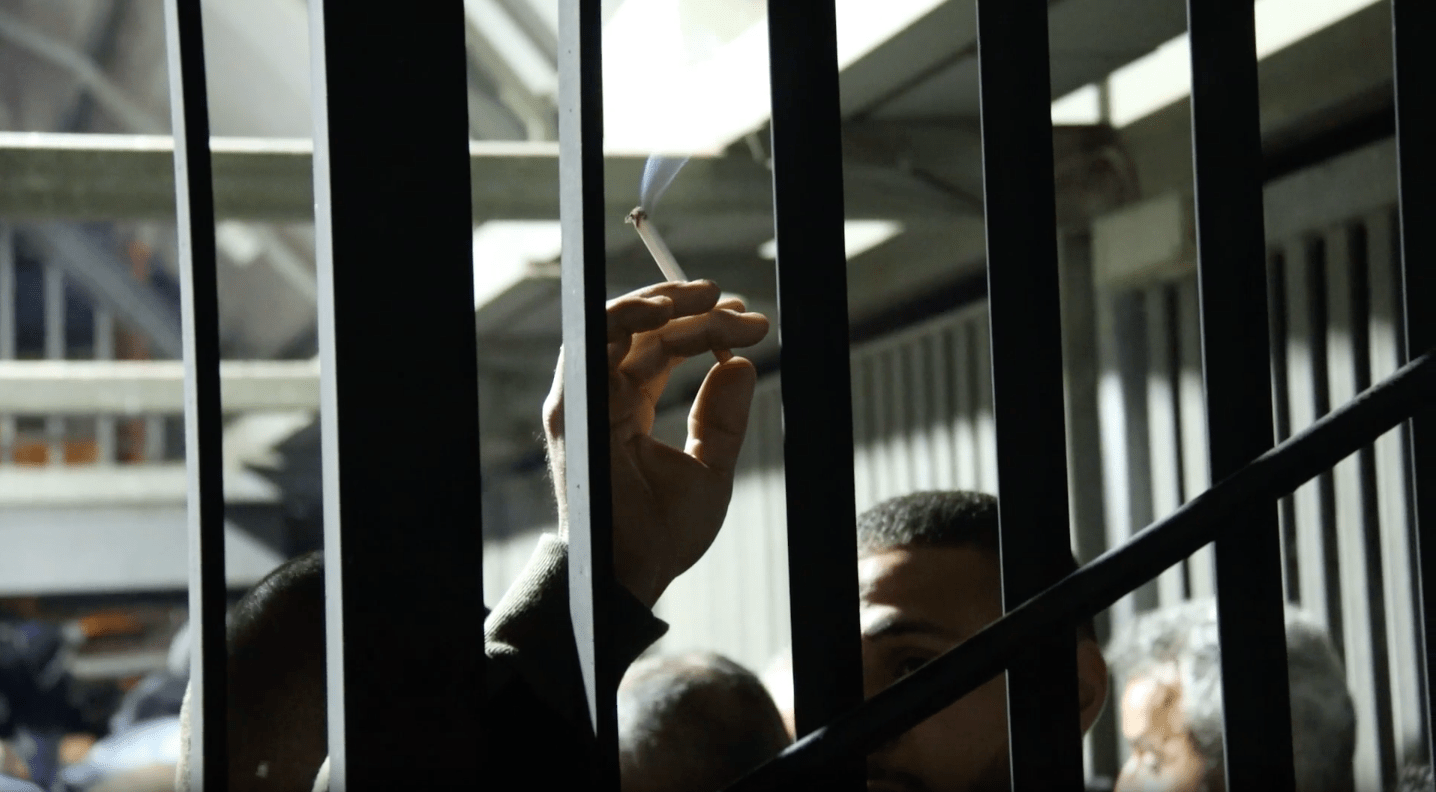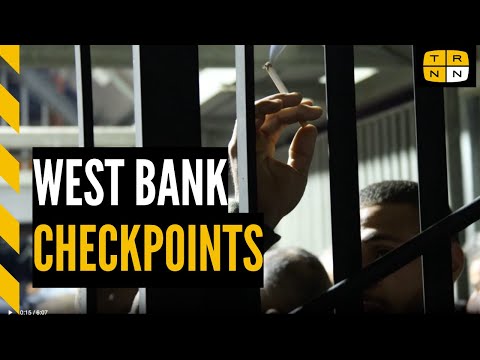In the West Bank of occupied Palestine, workers queue up at Israeli military checkpoints on their commutes to work. These workers are made to walk in single file through humiliating metal structures that are set up to restrict and monitor their movement. Many Palestinians crossing here are forced to work for their occupiers in territory governed by the state of Israel. The Real News Network was on the ground to speak these workers as they went through two checkpoints in the early hours of the morning.
This story, with the support of the Bertha Foundation, is part of The Real News Network’s Workers of the World series, telling the stories of workers around the globe building collective power and redefining the future of work on their own terms.
Videography: Ahmad Al-Bazz
Interviews: Sarah Abu Alrob
Writing and narration: Nadia Péridot
Transcript
Narrator : It’s a public holiday, but not for these Palestinian workers at Israeli settlements.
Mu’ath Qasem : Look at the workers, look at their faces. No one is happy, all of them are in debt.
Narrator : Here they line up single file to be filtered through checkpoints and authorized entry to work in land that they consider is occupied by Israel. For most here, there is little choice but to work for their occupiers.
Mohammad Toube : They built the wall after taking our land and properties and now we [work] for them. Is there anyone in the world who commutes to work at 03:30 am?
Narrator : For most here there is little choice but to work for their occupiers.
Mu’ath Qasem : I wake up at 1:30 a.m. At 02.00 am, I leave from Jenin to the checkpoint. It’s been an hour and a half that I have been waiting here for. It would solve the problem if they would open this check point earlier.
Narrator : Here in the West Bank, the Real News Network spoke to workers on the ground.
Haza’ Sabha : It’s a hard situation and especially for old people because there is (human) traffic. The checkpoints are complicated. The relaxation does not exist. But this is our daily life. We have responsibilities and duties towards our sons and daughters because there is no work in the West Bank.
Narrator : These workers and their communities are surrounded by checkpoints and are cut off from other villages and wider society.
Haza’ Sabha : The difficult conditions of our life is forcing us to go to our occupied land and work because every Palestinian family they have sons, young people and university graduates. It’s hard for parents to see their graduated sons sitting at home. They have no jobs. Fathers are forced to work when they are old. For example, I’m 62 years old and I come here every day at 3 am because I see my sons who are not able to build their future. I want to keep helping them. We are forced to adapt to the occupation.
Narrator : Israeli settlers are not subject to the same treatment and can enjoy freedom of movement.
Haitham Omar : I spend 30-60 minutes at the checkpoint. The [Israeli] worker has no checkpoints. They do not get inspected and are not asked to remove their clothes. Also, there is a gap in the rate. Our rate is not like theirs. They don’t need a [military] permit to work but we do. I can’t cross the checkpoint without a permit. They don’t pay for a permit. They have insurance. Everything is different. Israeli workers have everything.
Haitham Omar : [Israeli] settlers have their own checkpoints. They drive freely and we have to wait, if we are in cars. But at this checkpoint, we have to cross on foot.
Mohammad Toube : The work we do is not done by Israelis. All of the workers that are here are doing hard work. Hard work. The work they do is the nice and easy one. All of these poor people that you see around you are doing exhausting work. They work in construction, floors, ceiling and all other hard works. Yes they need us [workers].
Narrator : 500 meters away from Al Tayeb checkpoint, Palestinian farmers wait for Israeli soldiers to unlock gates and allow them access to their own agricultural land.
Randa Abu Ma’mar : I come here every day and usually it’s open Sunday, Tuesday and Thursday. But last time I came it was closed. So I decided to come today and they don’t allow me to cross.
Narrator : A population ruled by Israeli military law, these citizens are granted entry to work only as cheap labor which amounts to what the U.N. and numerous humanitarian organizations call an apartheid regime.
Ali Ne’erat : What can we say? It’s an occupation. We have no power to change this. I consider all of Palestine to be our land. They built a wall in it. It is a racist wall built by land grabbers. But there are no solutions. Don’t tell me the world doesn’t know! All Arab and Western countries know and are complicit with the occupation.
Help us improve our international labor coverage by taking this quick survey
It should only take two minutes, and all answers are confidential.



